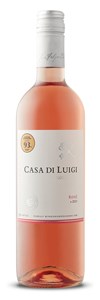To Life in a Glass: The Best Kosher Wines for Everyone

Two of the most important holidays on the Jewish calendar take place in October, Rosh Hashanah starts this Wednesday and Yom Kippur begins next week. Both are celebrated with kosher wine.
Here with her tips and sips is Natalie MacLean who offers Canada’s most popular online wine pairing classes at nataliemaclean.com.
Let’s start with what is kosher wine and how is it different from non-kosher wine?
Kosher wine is made using the same techniques as other wine, except that no leavens, wheat or animal products are used, such as gelatin or egg whites are often used to filter non-kosher wines. Instead, they use bentonite clay or kosher fish gelatin.
The bonus is that this also makes it vegan-friendly because they haven’t used any animal-based filters or products in making it.
These wines from Tzafona Cellars in Niagara-on-the-Lake are case in point, so to speak. It’s the only producer of kosher wine in the province.
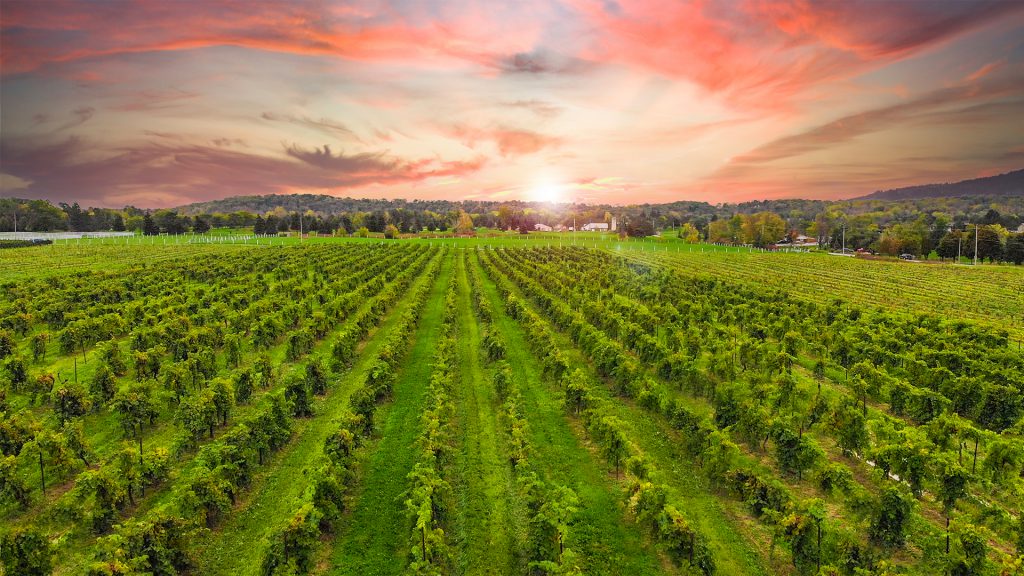
Tzafona Cellars, Niagara
The Nava White is a lovely floral wine made of Vidal grapes that’s perfect for seafood.
Tzafona Cellars Nava Blanc
Ontario VQA, Canada
The Nava Ruby is a juicy, smooth blend of Cabernet Sauvignon, Baco Noir and Merlot that would be great with brisket.
Tzafona Cellars Nava Ruby
Ontario VQA, Canada
The Reserve Right Bank is a stellar red wine blend of Merlot and Cabernet Sauvignon that’s aged for 18 months in French oak barrels. This would be perfect for your cellar as it’ll age for decades – if you can resist drinking it. I knew, I couldn’t.
Tzafona Cellars Reserve Dry Red
Niagara Peninsula, Ontario V.Q.A., Canada
They also make two world-class icewines, one from Vidal grapes and the other from Cabernet Franc. These would be lovely gift wines or pair them with a fruit flan.
Tzafona Cellars Cold Climate Vidal Icewine KP
Niagara Peninsula, Ontario V.Q.A., Canada
Tzafona Cellars Cabernet Franc Red Icewine
Niagara Peninsula, Ontario V.Q.A., Canada
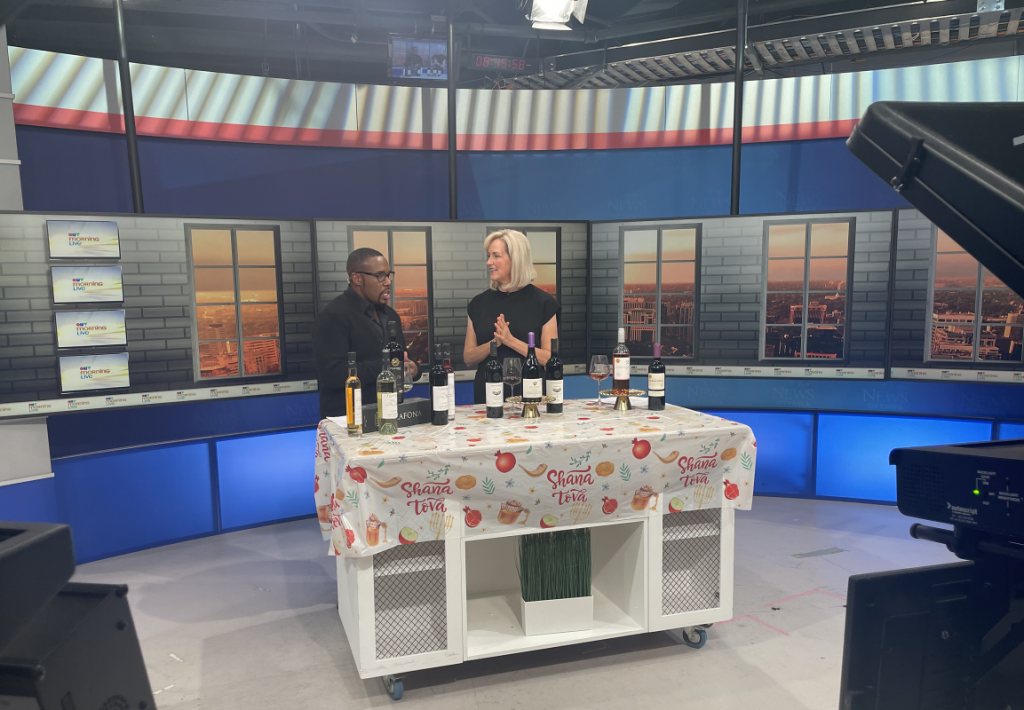
Are there additional winemaking steps for a wine to be considered kosher?
Yes, only Sabbath-observant Jewish individuals can handle the wine, from pressing to aging. After the wine is barreled and receives its rabbinical seal, a shomer or guardian is hired to ensure that nothing is improperly touched.
The quality of kosher wine has improved dramatically over the past five years. Even top French labels like Château Lafite-Rothschild in Bordeaux produces a kosher wine. So cast off any notions of it being sweet and insipid. It’s now as good as or better than non-kosher wines, which is why it’s one of the fastest growing categories in liquor stores.
According to some industry stats, forty to fifty percent of those who buy kosher wines are not Jewish.
They’re attracted to the kosher preparation, which is strictly supervised, and the fact that these producers avoid pesticides and other chemicals.
Tell us about your next kosher wines.
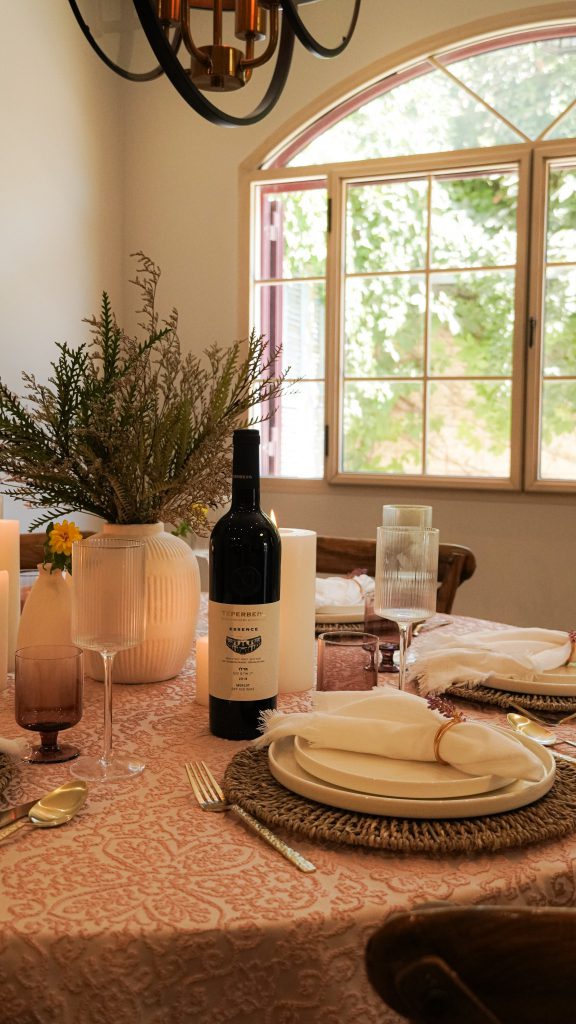
Teperberg Winery, Israel
These wines are made by Teperberg in Israel, including a vibrant combination of Sauvignon Blanc and Chardonnay with yellow apple and lime zest. Enjoy it with
Teperberg Winery Impressions Sauvignon Blanc Chardonnay KPM 2021
Judean Hills, Israel
The red is a full-bodied blend of Cabernet Sauvignon, Petite and Syrah with attractive notes of dark cherries, mocha and smoke. It would be so good with grilled meats.
Teperberg Winery Inspire Cabernet Sauvignon Merlot Petit Verdot KPM
Israel, Israel
Teperberg Winery Essence Cabernet Sauvignon KPM
Israel
Teperberg Winery Essence Merlot KP
Israel, Israel
How can you tell it’s a kosher wine from the label?
You can tell it’s kosher from the symbol of COR in a circle plus a P which means it’s kosher for Passover. On other bottles you may see a circle with a U (Union of Orthodox Jewish Congregations) or a K (Organized Kashrut Laboratories).
This one also says mevushal, meaning “boiled” or “cooked”, and therefore it can be handled by anyone and still maintain its integrity. Either the grape juice or the wine is flash-pasteurized; the temperature is turned up to 90°Celcius for ten seconds without damaging the wine. This is believed to alter the wine’s spiritual essence to make it impervious to those who are neither Jewish nor observant of the Sabbath.

What are your final kosher wines?
I have the Casa di Luigi Rosé, with lovely, lifted notes of field strawberries and the Terra Vega Carménère, a full-bodied red with dark fruit aromas – both from Chile.
Vina Luis Felipe Edwards House of Luigi Rosé KP
Chile
Vina Luis Felipe Edwards Terra Vega Carménère
Central Valley, Chile
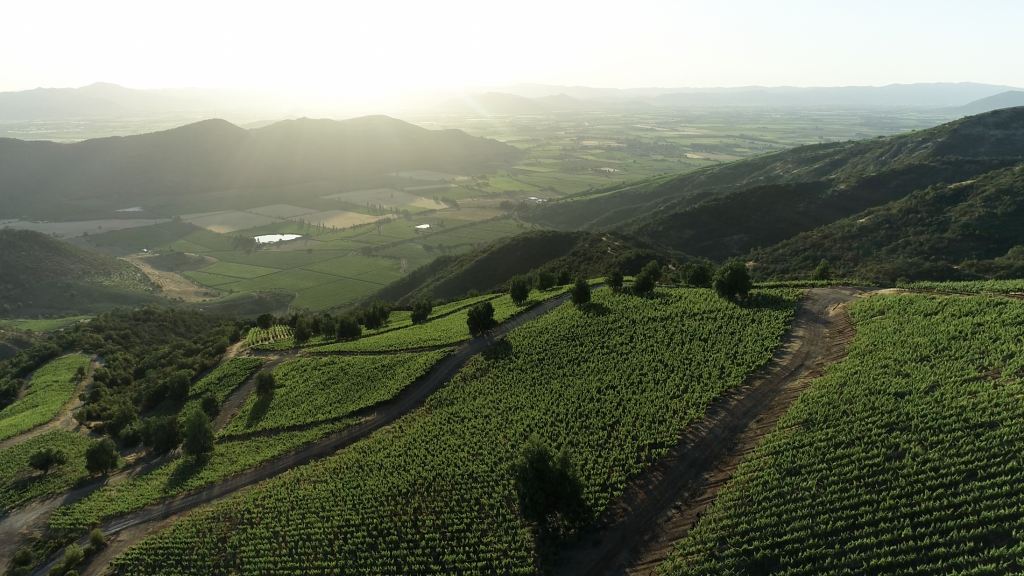
House of Luigi and Terra Vega, Chile
Any final observations?
Whether or not you keep kosher, many kosher wines are worth drinking. Raise a glass of this wonderful wine this fall with the traditional Jewish toast “L’chaim” — to life.
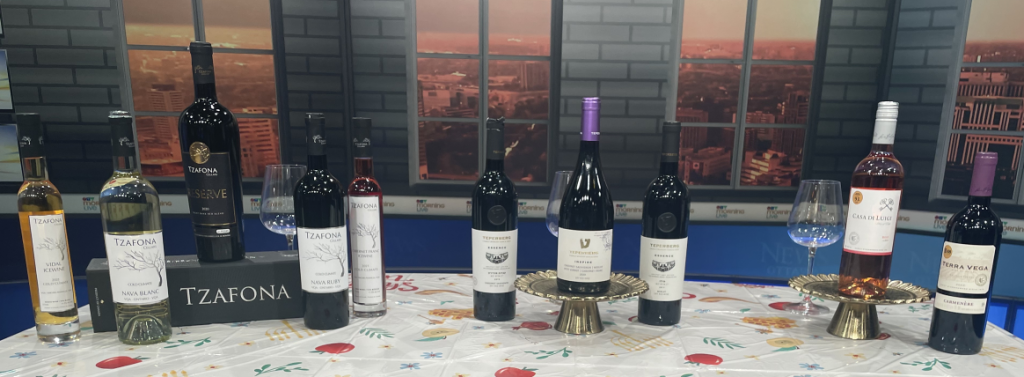
You can find the wines we talked about as well as her online classes on Natalie’s website at nataliemaclean.com.
You can get my free Ultimate Food and Wine Pairing guide here: nataliemaclean.com/guide







